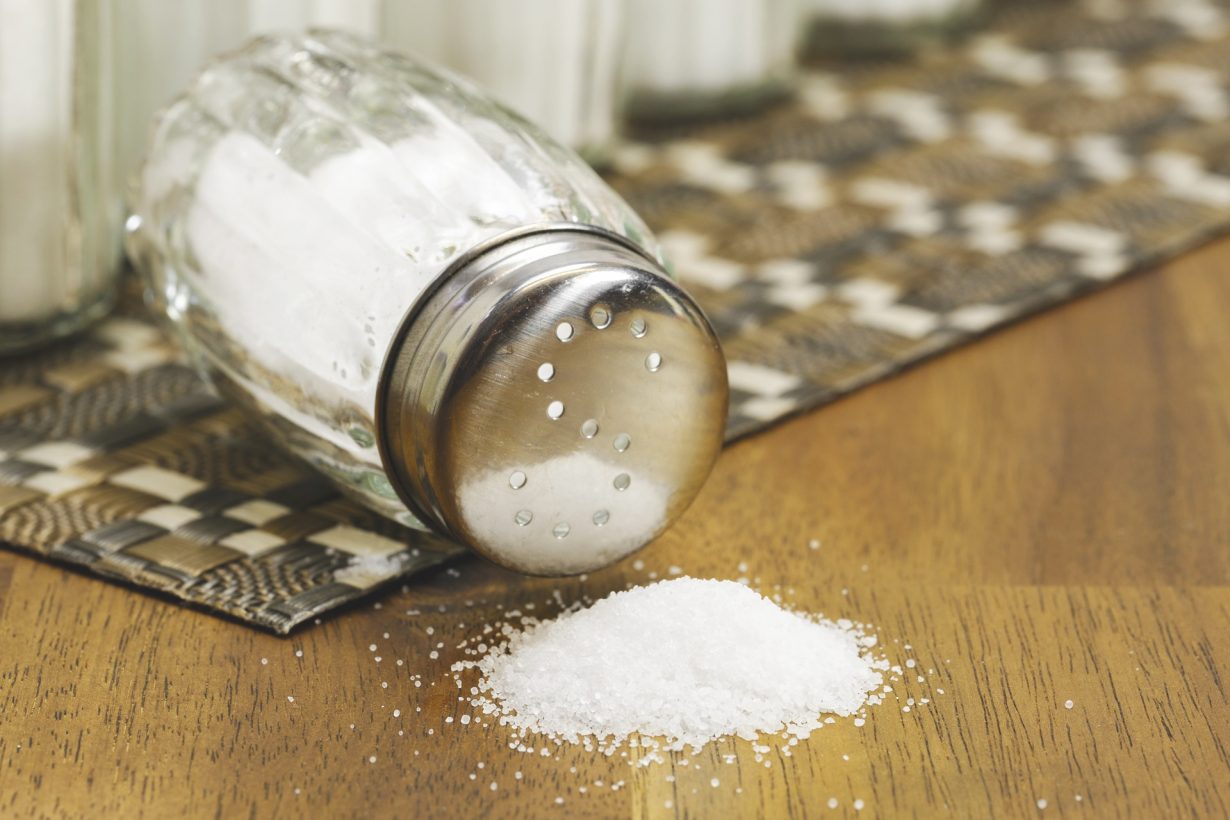
High-Salt Diet May Trigger Dementia
Dr. Liji Thomas, MD via News Medical-Net – We’ve all heard that taking too much salt can damage your blood vessels, and now a new study published in the journal Nature on October 23, 2019, says it’s true – a diet rich in salt reduces the levels of nitric oxide, which in turn alters the tau protein within the neuron, triggering a fall in cognitive processing by the brain.
The study is unique in that it shows how excess salt in the body actually brings about a reduction in cognitive brain functions, as well as showing how what you eat affects how you think and how your brain works.
Prior Research
An earlier study by researchers Giuseppe Faraco and Costantino Iadecola, published in Nature Neuroscience in 2018, showed that mice developed dementia when put on a high-salt diet. They became incapable of normal nest-building tasks as well as typical tests of memory. The scientists discovered the underlying mechanism – the excess salt promoted the release of the pro-inflammatory chemical interleukin-17 (IL-17) from the cells in the small intestine. This chemical circulated to the brain and inhibited the synthesis of nitric oxide in the brain by the endothelial cells.
Nitric oxide is an important chemical for the health of blood vessels everywhere. This vasodilator produces widening of the blood vessels, and thus increases blood flow to the organ supplied by those arteries. Obviously, therefore, a deficiency of nitric oxide can cause poor blood flow.
The scientists therefore came up with the hypothesis that salt-linked dementia in mice was due to the lowering of nitric oxide synthesis in the brain’s blood vessels, which reduced blood flow to the brain, depriving it of essential nutrients and oxygen. However, continued experimentation led them to the conclusion that this theory was not sufficient to explain the findings, because the restriction in blood flow was not marked enough to cause a significant loss of brain function. In Iadecola’s words, “We thought maybe there was something else going on here.”
Nitric Oxide and the Tau Protein
The new study reports the results of their further study. What they found was that the decreased production of nitric oxide in the blood vessels affects the stability of the tau proteins within nerve cells in the brain. These proteins are associated with Alzheimer’s dementia when deposited abnormally. However, they have an important role in normal brain cells – they are associated with the microtubule system, and thus serve as the mechanical support of the cell, or cytoskeleton. The tau protein structure thus serves as a system of trafficking materials across the cell, as required to fulfil various cell functions and keep the neuron healthy.
When the tau protein is hyperphosphorylated, as occurs with too low levels of nitric oxide, it becomes unstable and is shed from the cytoskeletal structure. Free tau spells trouble within the neuron, because it accumulates to interfere with neural functioning.
In short, normal levels of nitric oxide are necessary to prevent the abnormal buildup of free tau within the neuron. Iadecola says, “It puts the brakes on activity caused by a series of enzymes that leads to tau disease pathology.”
The next step was to put another set of mice on a excess-salt diet, resulting in poor blood flow in the brain. However, these mice were then put on an anti-tau antibody. The effect was satisfying – despite the restricted circulation, these mice showed normal cognitive function. Cognitive impairment was also not seen in mice that had lost the capacity to produce tau protein. The conclusion the scientists reached was that the culprit behind the dementia in these mice was not really the poor blood flow but the tau buildup.
Implications
The real importance of the study is reinforcing the immense importance of the health of blood vessels to the brain’s functioning. And this is not just by providing oxygen and nutrients, but also by promoting a number of vital cell reactions that keep the neuron functional and healthy.
The researchers emphasize that the study also shows how important it is to keep a tight rein on salt consumption to preserve good neural function for a longer period. Iadecola’s final comment: “The stuff that is bad for us doesn’t come from a saltshaker, it comes from processed food and restaurant food. We’ve got to keep salt in check. It can alter the blood vessels of the brain and do so in vicious way.”
To read the original article click here.






